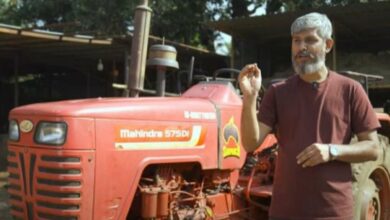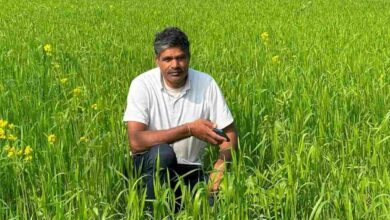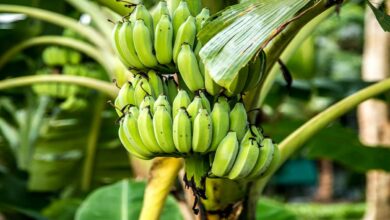Success Story: Know how a woman turned aloe vera into the world’s first aloe vera battery
Success Story: Nimisha Varma is spearheading a revolutionary cleantech movement in a society that is struggling with the environmental impact of electronic trash. As the co-founder and co-chair of Aloe E-Cell Pvt. Ltd., she has invented the first 100% environmentally friendly battery made of aloe vera, a breakthrough that has the potential to completely change the energy storage landscape. Inspired by the pressing need for sustainable alternatives, Nimisha and her team have created a biodegradable solution that uses battery-to-fertilizer conversion to help regenerative agriculture while simultaneously reducing e-waste.

By combining creativity with a strong sense of environmental responsibility, Nimisha promotes the ideas of the circular economy by converting used batteries into fertilizers that are rich in micronutrients and aid in replenishing India’s impoverished soils. Her groundbreaking invention, which was named a Global Winner by Schneider Electric in 2019 and acknowledged by EIT-KIC, a preeminent climate innovation initiative, is becoming widely accepted globally, enabling a new generation of cleantech and agritech entrepreneurs—particularly women—to make significant contributions through sustainable science.
An in-depth examination of e-waste
Aloe E-Cell’s concept did not emerge overnight. Nimisha and her colleagues began investigating the growing problem of e-waste in 2018. After further investigation, they discovered that a significant portion of this waste is caused by tiny household batteries that are carelessly thrown away. The ecosystem is seriously threatened when these seemingly innocuous batteries are disposed of in landfills. As Nimisha pointed out, one battery may contaminate up to 167,000 liters of potable water.
They found two glaring gaps in the explanations for why this problem hasn’t been resolved yet: a lack of innovation and a lack of sound unit economics for making inexpensive batteries. Their business was founded on that discovery.
Aloe E-Cell’s Journey from Kitchen Garden to Laboratory
In an effort to find an ecologically responsible alternative, Nimisha and her colleagues experimented with several biodegradable and bioavailable materials for over five years. Before deciding on aloe vera as a potential remedy, they experimented with a variety of natural materials and other plant leaves, stems, byproducts, etc., as well as other xerophytic plants.
Aloe vera became the innovation’s hero because of its exceptional electrolytic and binding capabilities. It replaced about 60% of the conventional battery components, including plastics and hazardous chemicals. The group was able to create a green battery that performs on par with, and in some cases even better than, conventional batteries after many trials, setbacks, and victories.
The Verifiable Sustainability of Aloe E-Cell Batteries
The Aloe E-Cell is a groundbreaking reimagining of what a battery can be, not simply another eco-friendly product. What makes it special is this:
- Chemical-Free Composition: It stays away from dangerous substances including nickel, cadmium, and mercury.
- Biodegradable Components: Paper and other natural substitutes have taken the place of plastic in some components.
- Greater Durability: Compared to conventional batteries, aloe-based batteries have a 1.5-fold longer lifespan.
- Non-Toxic and Renewable: These batteries are environmentally safe since they are made of natural materials.
- Power Regeneration: They don’t need artificial corrosion inhibitors since they naturally have the capacity to regenerate power.
Converting Battery Waste into Farmers’ Micronutrient Fertiliser
Aloe E-Cell’s second product line, micronutrient fertilizers made from discarded battery trash, is what makes it so groundbreaking. Since more than 80% of Indian soils lack micronutrients like manganese and zinc, Nimisha’s team developed a method to turn harmful battery waste into beneficial agricultural inputs.
In addition to addressing the issue of battery waste disposal, this research offers farmers a cost-effective, nutrient-dense substitute. Three different types of fertilizers have been developed so far: multi-micronutrient, manganese-based, and zinc-based fertilizers. These have been tested in eleven cities with positive outcomes. Crops including wheat, rice, bajra, and millets are already benefiting from these fertilizers.
In addition, Aloe E-Cell is promoting a true circular economy by collecting and recycling EV and other batteries in addition to recycling its own batteries.
Confronting the Facts: Difficulties of Operating a Sustainability Startup
There are obstacles to overcome when introducing a sustainable product to the general public. Nimisha freely acknowledges the monetary and perceptional difficulties her company faced. Even when consumers are aware of the long-term environmental costs, they often choose less expensive, non-sustainable items in price-sensitive markets like India.
Product-oriented innovation requires a lot of research and development, which may be costly and time-consuming, especially in the cleantech industry. The largest obstacle was doing such research in a fast-growing economy with insufficient funding. Nevertheless, the team at Aloe E-Cell persisted and instead used cost-effective strategies to innovate both the product and the associated procedures.
Market Size and Upcoming Projects
Aloe E-Cell’s product distribution has already started. They planned a pre-sale promotion for the product testing around Diwali. Currently, Telangana, Andhra Pradesh, Maharashtra, Rajasthan, Uttar Pradesh, and Assam are the states where Aloe E-Cell batteries are sold. With Sweden and the United Arab Emirates in the works, they want to expand into Gujarat, Kerala, and possibly outside.
A Female Cleantech Leader
As a female entrepreneur in the cleantech and agritech sectors, Nimisha has seen her fair share of structural and social rejections. From skepticism to resistance, the path wasn’t easy. However, she is adamant about putting meaning ahead of appearances.
“Everyone will try to pull you down, but it’s your inner belief and your team that will keep going,” she says succinctly but firmly to aspiring female entrepreneurs. Don’t let the clamor distract you; have faith in your idea and be committed to your goal.
Today Is the First Step Towards a Green Future
Aloe E-Cell is more than just a business. It is a cause—a cause that transforms pollution into output, waste into income, and innovation into influence. The tale of Nimisha Varma demonstrates what may occur when sustainability and social justice are combined with science. Her idea also promises a healthier, more empowered future for Indian farmers and consumers, in addition to a cleaner world.





